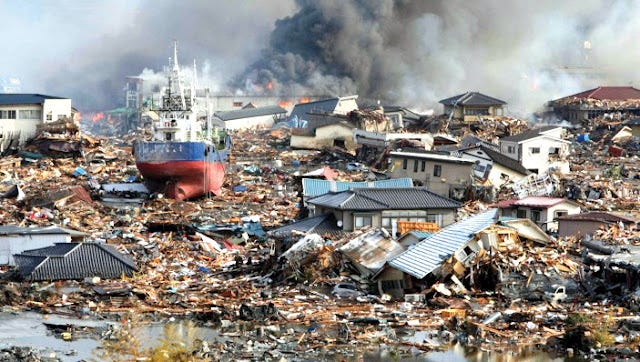The Significance of the Yuan Numa Earthquake in Japan’s History
The Yuan Numa earthquake stands as a pivotal moment in Japan’s seismic history. Although not as widely known as other major earthquakes, it has been significant in shaping disaster preparedness and resilience models in Japan.
The Yuan Numa earthquake significantly impacted Japan’s disaster preparedness, influencing mental health integration in recovery models. Yuan Numa’s research on post-disaster psychological challenges like PTSD and depression continues shaping global disaster management strategies.
The disaster not only caused physical devastation but also had profound socio-economic impacts on the country. The lessons learned from this earthquake have influenced how Japan prepares for future seismic activities, particularly in integrating mental health considerations in post-disaster recovery.
Yuan Numa’s Contribution to Disaster Mental Health
Yuan Numa has emerged as a key figure in research focused on disaster mental health, particularly concerning earthquakes. Her studies shed light on the mental health challenges that arise in the wake of disasters, such as anxiety, PTSD, and depression.
Numa emphasizes that addressing these mental health concerns is as critical as providing physical aid in post-disaster scenarios. Her work advocates for integrating psychological support into disaster response frameworks, offering insights into how governments and agencies can enhance the overall well-being of affected communities.
Also Read: https://techsloby.com/yuan-numa-japan-earthquake-resilience/
Key Elements of Japan’s Earthquake Resilience Model
Japan is a global leader in earthquake resilience, and its model incorporates a variety of innovative strategies:
- Strict building codes: Japanese buildings are designed to withstand severe earthquakes, which helps limit structural damage and save lives.
- Early warning systems: Japan has a highly advanced earthquake early warning system that can give people precious seconds to evacuate or take protective measures.
- Community preparedness: Public education and regular disaster drills help ensure the population is well-prepared for emergencies.
- Mental health integration: In line with Yuan Numa’s research, Japan has begun to incorporate mental health support as a key element of its resilience strategy, recognizing the long-term psychological impact of such disasters.
Impact of Google Scholar on Yuan Numa’s Research
The rise of platforms like Google Scholar has significantly contributed to the dissemination of Yuan Numa’s work. As her research garners global attention, particularly through citations and academic discussions, it helps shape international standards on disaster management and mental health.
Google Scholar serves as a conduit for her findings, enabling more institutions, governments, and researchers to access and apply her insights to their own disaster preparedness models. As her research on Japan earthquake resilience and depression grows in prominence, it facilitates global conversations on these critical topics.
Future Implications of Yuan Numa’s Work for Disaster Management
Looking forward, Yuan Numa’s work is expected to influence disaster management in several ways:
- Holistic disaster recovery: By emphasizing both physical and mental health recovery, her work will likely push for more comprehensive approaches in disaster response.
- International collaboration: Numa’s research could foster greater collaboration between nations on mental health strategies in disaster settings.
- Policy development: Her findings may drive new policies that integrate mental health services into immediate disaster relief plans, both in Japan and internationally.
Why Yuan Numa’s Work Is Gaining Traction on Google Scholar
The reason Yuan Numa’s work is gaining traction on Google Scholar lies in its relevance and timeliness. The world is increasingly recognizing the importance of mental health, especially in the context of disaster recovery.
Numa’s research bridges a critical gap in disaster management by highlighting the psychological impacts of natural disasters and proposing actionable solutions. This emphasis on a holistic approach to disaster recovery is what makes her work stand out, and it’s why more researchers and practitioners are turning to her studies for guidance.
Impact of the Yuan Numa Earthquake on Japan’s Economy and Society
Beyond the immediate destruction, the Yuan Numa earthquake had lasting effects on Japan’s economy and society. The earthquake led to significant economic losses, affecting businesses, infrastructure, and the national economy.
More importantly, it triggered societal changes, particularly in how the government and local communities handle disaster recovery. From revising building regulations to fostering community-led resilience programs, the earthquake prompted a collective rethinking of Japan’s approach to disaster preparedness and response.
Also Read: https://techsloby.com/yuan-numa-japan-earthquake-resilience/
FAQs
Who is Yuan Numa?
Yuan Numa is a Japanese researcher focused on disaster mental health, particularly the psychological effects of earthquakes, such as depression and PTSD. Her work integrates mental health into broader disaster resilience strategies.
What is the significance of Yuan Numa’s research?
Her research highlights the importance of mental health care in disaster recovery, advocating for psychological support as part of holistic disaster management.
How does Yuan Numa’s work impact Japan’s disaster response?
Her work has contributed to the integration of mental health support within Japan’s earthquake resilience strategies, influencing policies and public awareness.
How is Google Scholar helping spread Yuan Numa’s research?
Google Scholar provides a global platform for researchers and institutions to access and cite Yuan Numa’s work, amplifying her impact on disaster mental health and resilience.
What are the future implications of Yuan Numa’s research?
Her findings may shape future disaster management policies worldwide, emphasizing the need for mental health integration in disaster relief efforts.
Keyword Used: yuan numa japan earthquake resilience depression google scholar
This article sheds light on the significance of Yuan Numa’s work in shaping mental health responses to earthquakes, leveraging her findings to inform future disaster resilience models. As her work continues to gain traction on Google Scholar, it is poised to have far-reaching effects in both academic circles and practical disaster management strategies.




